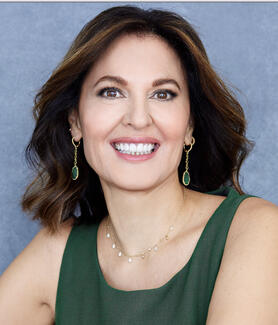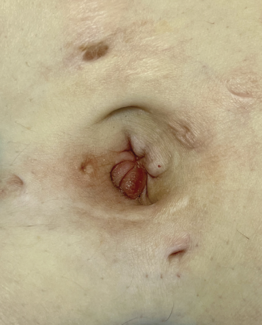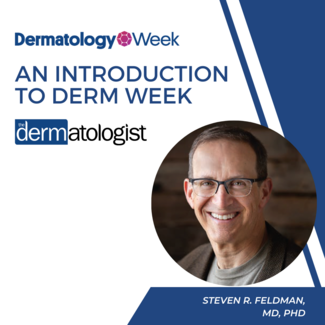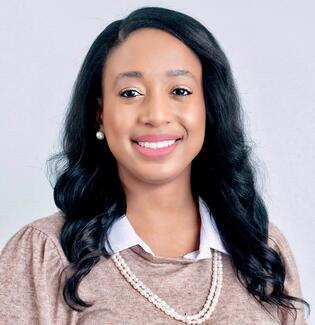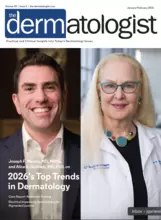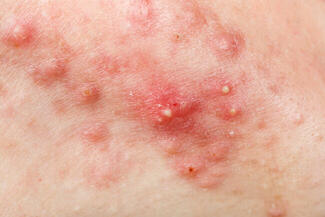Dr. Henry Foong graduated with an M.B.B.S. degree from the University of Malaya, Kuala Lumpur. His dermatology training was received at the University of Malaya Medical Centre, Kuala Lumpur, and at the Department of Dermatology, Kuala Lumpur General Hospital. Afterward, he had many visiting fellowships, including those in the Department of Genitourinary Medicine at St. Thomas’s Hospital, London, UK, in the Department of Dermatology at the University of Edinburgh, in Edinburgh, Scotland, and at SkinCare Physicians of Chestnut Hill in Boston, MA.
Dr. Henry Foong is a practicing dermatologist at the Foong Skin Specialist Clinic, Ipoh, Malaysia. He is the Editor-in-Chief of the Malaysian Journal of Dermatology, the official publication of the Dermatological Society of Malaysia. He co-directs the virtual grand rounds in dermatology (www.vgrd.org), a Web-based CME dermatology rounds. Dr. Foong’s main interests are teledermatology, dermatologic surgery and medical education.
Q. What part of your work gives you most pleasure?
A. The entire patient experience — working up a patient’s problem, solving it, following up with the patient and seeing them get well.
The most fascinating part, perhaps, is to participate in a virtual grand round (VGRD) (www.vgrd.org), during which one can present a clinical case to colleagues around the world and get feedback from seasoned dermatologists. This is a tremendous help in understanding and managing difficult cases. One of the goals of VGRD is to help dermatologists from both developed and developing countries to share their experiences
with one another.
Q. Are an understanding and appreciation for the humanities important in dermatology? A. “The treatment of a disease may be entirely impersonal. The care of a patient must be completely personal.” — F. Peabody
The student must acquire knowledge of human relationships, both personal and communal, and of the interaction between man and his physical, biological and social environment. Medicine is an art as well as a science. The humanities provide an important role in understanding the patient and his illness.
Q. What do you think is the greatest political danger to the field of dermatology?
A. Dermatology is becoming increasingly more of an office-based specialty, and we are losing contact with our hospital-based colleagues. We need to rectify that before we become isolated from the medical specialty. Because we are more efficient in our management of skin diseases, fewer and fewer admissions and inpatient care are necessary nowadays.
Q. What is your biggest extravagance?
A. Changing and upgrading desktop computers, notebooks, mobile phones, digital cameras and PDAs.
Dr. Henry Foong graduated with an M.B.B.S. degree from the University of Malaya, Kuala Lumpur. His dermatology training was received at the University of Malaya Medical Centre, Kuala Lumpur, and at the Department of Dermatology, Kuala Lumpur General Hospital. Afterward, he had many visiting fellowships, including those in the Department of Genitourinary Medicine at St. Thomas’s Hospital, London, UK, in the Department of Dermatology at the University of Edinburgh, in Edinburgh, Scotland, and at SkinCare Physicians of Chestnut Hill in Boston, MA.
Dr. Henry Foong is a practicing dermatologist at the Foong Skin Specialist Clinic, Ipoh, Malaysia. He is the Editor-in-Chief of the Malaysian Journal of Dermatology, the official publication of the Dermatological Society of Malaysia. He co-directs the virtual grand rounds in dermatology (www.vgrd.org), a Web-based CME dermatology rounds. Dr. Foong’s main interests are teledermatology, dermatologic surgery and medical education.
Q. What part of your work gives you most pleasure?
A. The entire patient experience — working up a patient’s problem, solving it, following up with the patient and seeing them get well.
The most fascinating part, perhaps, is to participate in a virtual grand round (VGRD) (www.vgrd.org), during which one can present a clinical case to colleagues around the world and get feedback from seasoned dermatologists. This is a tremendous help in understanding and managing difficult cases. One of the goals of VGRD is to help dermatologists from both developed and developing countries to share their experiences
with one another.
Q. Are an understanding and appreciation for the humanities important in dermatology? A. “The treatment of a disease may be entirely impersonal. The care of a patient must be completely personal.” — F. Peabody
The student must acquire knowledge of human relationships, both personal and communal, and of the interaction between man and his physical, biological and social environment. Medicine is an art as well as a science. The humanities provide an important role in understanding the patient and his illness.
Q. What do you think is the greatest political danger to the field of dermatology?
A. Dermatology is becoming increasingly more of an office-based specialty, and we are losing contact with our hospital-based colleagues. We need to rectify that before we become isolated from the medical specialty. Because we are more efficient in our management of skin diseases, fewer and fewer admissions and inpatient care are necessary nowadays.
Q. What is your biggest extravagance?
A. Changing and upgrading desktop computers, notebooks, mobile phones, digital cameras and PDAs.
Dr. Henry Foong graduated with an M.B.B.S. degree from the University of Malaya, Kuala Lumpur. His dermatology training was received at the University of Malaya Medical Centre, Kuala Lumpur, and at the Department of Dermatology, Kuala Lumpur General Hospital. Afterward, he had many visiting fellowships, including those in the Department of Genitourinary Medicine at St. Thomas’s Hospital, London, UK, in the Department of Dermatology at the University of Edinburgh, in Edinburgh, Scotland, and at SkinCare Physicians of Chestnut Hill in Boston, MA.
Dr. Henry Foong is a practicing dermatologist at the Foong Skin Specialist Clinic, Ipoh, Malaysia. He is the Editor-in-Chief of the Malaysian Journal of Dermatology, the official publication of the Dermatological Society of Malaysia. He co-directs the virtual grand rounds in dermatology (www.vgrd.org), a Web-based CME dermatology rounds. Dr. Foong’s main interests are teledermatology, dermatologic surgery and medical education.
Q. What part of your work gives you most pleasure?
A. The entire patient experience — working up a patient’s problem, solving it, following up with the patient and seeing them get well.
The most fascinating part, perhaps, is to participate in a virtual grand round (VGRD) (www.vgrd.org), during which one can present a clinical case to colleagues around the world and get feedback from seasoned dermatologists. This is a tremendous help in understanding and managing difficult cases. One of the goals of VGRD is to help dermatologists from both developed and developing countries to share their experiences
with one another.
Q. Are an understanding and appreciation for the humanities important in dermatology? A. “The treatment of a disease may be entirely impersonal. The care of a patient must be completely personal.” — F. Peabody
The student must acquire knowledge of human relationships, both personal and communal, and of the interaction between man and his physical, biological and social environment. Medicine is an art as well as a science. The humanities provide an important role in understanding the patient and his illness.
Q. What do you think is the greatest political danger to the field of dermatology?
A. Dermatology is becoming increasingly more of an office-based specialty, and we are losing contact with our hospital-based colleagues. We need to rectify that before we become isolated from the medical specialty. Because we are more efficient in our management of skin diseases, fewer and fewer admissions and inpatient care are necessary nowadays.
Q. What is your biggest extravagance?
A. Changing and upgrading desktop computers, notebooks, mobile phones, digital cameras and PDAs.







